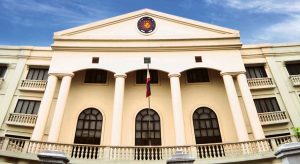THE Philippine government on Tuesday said it will launch a virtual procurement platform in the second quarter with vehicles the initial product category to be bid on.
The proposed e-marketplace of the Department of Budget and Management (DBM) digitalizes procurement, which is the “biggest bottleneck or hurdle in the budget utilization of our agencies,” Secretary Amenah F. Pangandaman said at a Palace briefing.
The platform, which was approved by President Ferdinand R. Marcos, Jr. earlier in the day, could cut the procurement process to as fast as three days from the usual 26-136 days, according to Dennis S. Santiago, executive director of the DBM’s Procurement Service (PS).
“You have products already in the system then the government procuring entities will have to select from those products and then already put in an order right there and then,” he said.
Procuring entities could save 8% to 10% using the e-marketplace, which will bypass the need for a bids and awards committee, he added.
Ms. Pangandaman said the virtual platform will be among the Government Electronic Procurement System’s new features, which also include reverse auctions, advanced data analytics, and system integration.
“We’re focusing on the e-marketplace that we will launch around the end of July or early August this year to allow for ease of the procurement in government.”
The proposed platform was first unveiled in August as a means of modernizing its procurement system. The Marcos administration has included a bill seeking to amend the 2003 procurement law in its priority legislation.
With the e-marketplace, the government may attract new bidders, especially foreign entities, according to Terry L. Ridon, a public investment analyst and convenor of InfraWatchPH.
“But they will have to build their track record and financial capacity as well, in order to bid for higher, more substantial budgets for goods or services,” he said via chat.
He said the government will ensure that procurement safeguards remain in place despite digitalization, “ensuring the lowest cost for a particular set of goods or services.”
For the initial vehicle procurement, Mr. Santiago said, “We will not be dealing with dealerships. We will be dealing with manufactures and distributors of motor vehicles,” he said, noting that the PS will looking at suppliers who can provide volume and low prices.
“Can they deliver on time? Do they have the stock in a certain period of time — 30 days, 60 days or 34 to 5 days?”
In the first quarter, government entities including local government units procured about 2,000 vehicles worth P8 billion, he said.
The DBM said local government units may choose to procure motor vehicles outside the e-marketplace pending the issuance of a certificate of non-availability.
“If (the items in the) e-marketplace are either expensive or not available, they can go ahead and make their purchases.”
Under a letter of instruction adopted by the National Government in 1978 to ensure supplies and materials are procured in the most economical and efficient way, common-use supplies and equipment must be obtained from bulk purchases made by the PS. — Kyle Aristophere T. Atienza
